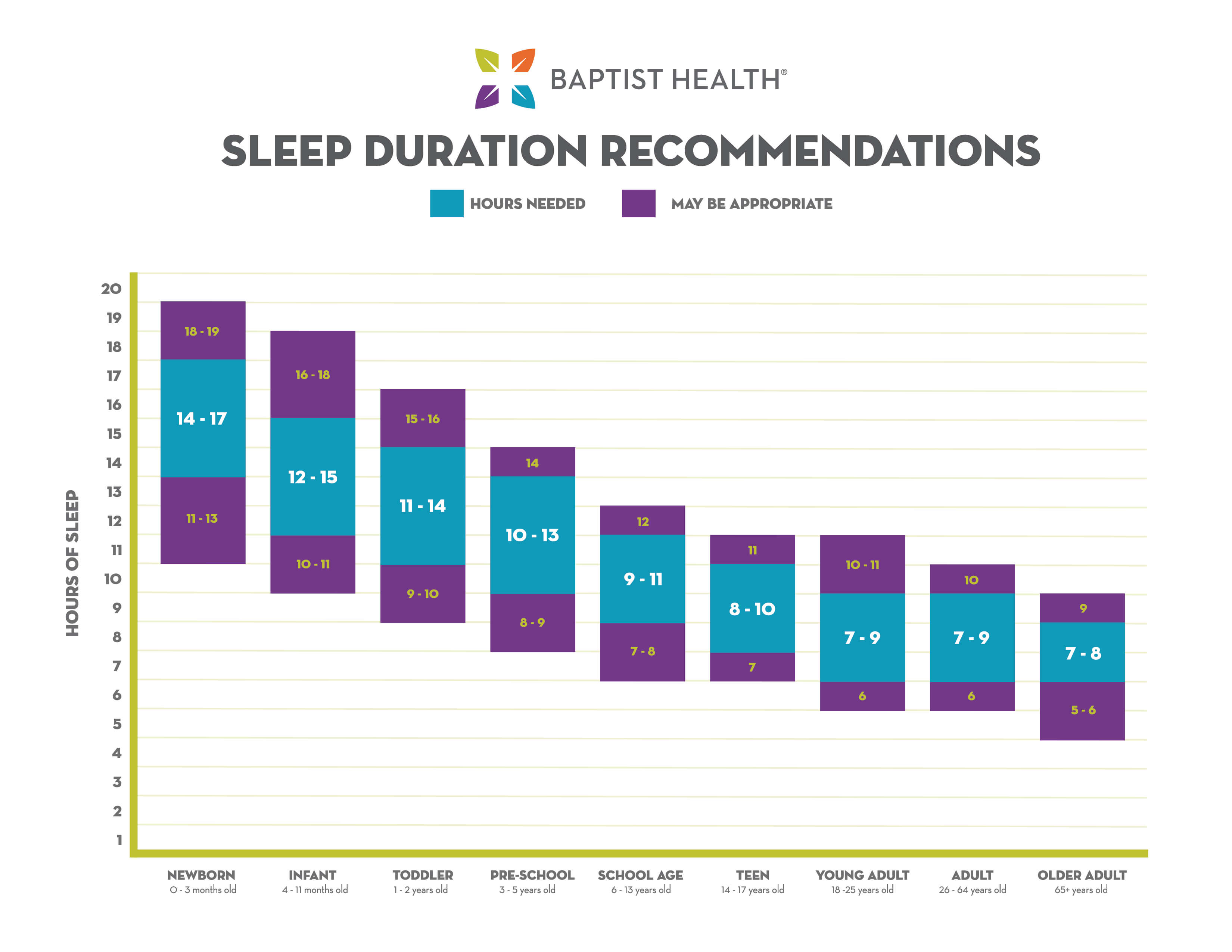How Much Sleep Do You Need?

The Importance of Getting Enough Sleep
Sleep is more than just a period of physical and mental “downtime.” Getting restful sleep and enough of it is critical to overall health and wellbeing. Every organ and system in the body — from the heart and brain to the immune system — capitalizes on sleep to recharge and perform maintenance functions. Failing to get enough sleep for an extended period is likely to cause mental, emotional or physical issues.
On the flip side, people who get an adequate amount of restorative sleep tend to enjoy many benefits. For example, they have more energy, are able to think more clearly and creatively, and are more productive at work or school. Their bodies are also better prepared to fight illnesses and avoid injuries. And all of these benefits are provided by an “activity” that is very enjoyable. All it takes is a commitment to making time for sleep and addressing any issues that may be interfering with it.

The realization that sleep is so important can bring up many questions, including:
- Can I make up for lost sleep during the week by sleeping more on the weekend? While getting more sleep on the weekend can help to a degree, it doesn’t fully compensate for a sleep deficit. Finding and sticking to your optimal sleep time all week long is a better approach.
- Does sleeping an hour less than recommended each night have any negative impact during the day? Yes, it does. You may not feel drowsy, but even a small sleep deficit can affect everything from heart health to immune system functioning.
- Can daytime napping make it harder to sleep at night? It can, especially if you take long naps. Ideally you should avoid napping if possible or limit naps to a maximum of 30 minutes.
- Is 7 hours of sleep enough? The bigger question is, “How much sleep do adults need?” And the answer is that it varies. Generally speaking, most adults require 7-9 hours of sleep per 24-hour period.
Deep Sleep and REM Sleep
When we’re getting a healthy amount of sleep, the body cycles through different stages. Each stage has a function. The third stage is called deep sleep or slow-wave sleep. This critical period is the time when the body repairs itself. It is also when the body stores up energy for the day ahead.
After deep sleep comes what is called REM (for “rapid eye movement”) sleep. During this period, the brain is very active. The voluntary muscles, on the other hand, are atonic, meaning they’re without movement. It is during REM sleep that we dream. Some experts believe that dreaming helps us process and store information from our daytime experiences.
While the required adult sleep hours may vary from person to person, it is important that we experience both deep sleep and REM sleep every night.
Signs You Aren’t Getting Enough Sleep
Feeling tired during the day is the most recognized sign that a person isn’t getting a healthy amount of sleep. This is what is referred to as sleep deprivation. However, there are other signs that minimum sleep requirements aren’t being met. They include:
- Moodiness or irritability
- Difficulty concentrating
- Decreased sex drive
- Reduced creativity and problem-solving ability
- Impaired motor skills
- Weakened immune system and more illnesses
Tips for Getting More Sleep
As mentioned above, the answer to the question, “How much sleep do adults need?” is that it varies. But, if you identify your optimal sleep time and aren’t achieving it, you can take the following steps to get more sleep:
- Assess and correct your sleep environment. It should be dark, quiet and comfortably cool.
- Exercise regularly. Try to get approximately 30 minutes of physical activity on most days, ideally not too close to bedtime.
- Stick to a regular sleep schedule. Go to bed and get up at the same time every day, including on weekends.
- Reduce your stress level. Take action to identify and resolve the sources of your daytime stress.
- Eat and drink wisely. Avoid caffeine, heavy meals and excessive fluids close to bedtime.
- Create a healthy bedtime routine. Turn off screens well before bedtime, avoid stressful conversations and practice relaxation techniques.
Learn more about sleep disorders and the services provided by the Sleep Center at Baptist Health.



